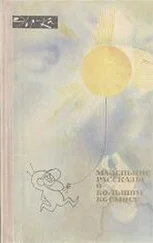‘I love it as well thus as in its dewy freshness,’ observed he, pressing the withered rose to his withered lips. While he spoke, the butterfly fluttered down from the doctor’s snowy head, and fell upon the floor.
His guests shivered again. A strange chillness, whether of the body or spirit they could not tell, was creeping gradually over them all. They gazed at one another, and fancied that each fleeting moment snatched away a charm, and left a deepening furrow where none had been before. Was it an illusion? Had the changes of a lifetime been crowded into so brief a space, and were they now four aged people, sitting with their old friend, Dr. Heidegger?
‘Are we grown old again, so soon?’ cried they, dolefully.
In truth they had. The Water of Youth possessed merely a virtue more transient than that of wine. The delirium which it created had effervesced away. Yes! they were old again. With a shuddering impulse, that showed her a woman still, the widow clasped her skinny hands before her face, and wished that the coffin lid were over it, since it could be no longer beautiful.
‘Yes, friends, ye are old again,’ said Dr. Heidegger, ‘and lo! the Water of Youth is all lavished on the ground. Well – I bemoan it not; for if the fountain gushed at my very doorstep, I would not stoop to bathe my lips in it – no, though its delirium were for years instead of moments. Such is the lesson ye have taught me!’
But the doctor’s four friends had taught no such lesson to themselves. They resolved forthwith to make a pilgrimage to Florida, and quaff at morning, noon, and night, from the Fountain of Youth.
In the latter part of the last century there lived a man of science, an eminent proficient in every branch of natural philosophy, who not long before our story opens had made experience of a spiritual affinity more attractive than any chemical one. He had left his laboratory to the care of an assistant, cleared his fine countenance from the furnace smoke, washed the stain of acids from his fingers, and persuaded a beautiful woman to become his wife. In those days when the comparatively recent discovery of electricity and other kindred mysteries of Nature seemed to open paths into the region of miracle, it was not unusual for the love of science to rival the love of woman in its depth and absorbing energy. The higher intellect, the imagination, the spirit, and even the heart might all find their congenial aliment in pursuits which, as some of their ardent votaries believed, would ascend from one step of powerful intelligence to another, until the philosopher should lay his hand on the secret of creative force and perhaps make new worlds for himself. We know not whether Aylmer possessed this degree of faith in man’s ultimate control over Nature. He had devoted himself, however, too unreservedly to scientific studies ever to be weaned from them by any second passion. His love for his young wife might prove the stronger of the two; but it could only be by intertwining itself with his love of science, and uniting the strength of the latter to his own.
Such a union accordingly took place, and was attended with truly remarkable consequences and a deeply impressive moral. One day, very soon after their marriage, Aylmer sat gazing at his wife with a trouble in his countenance that grew stronger until he spoke.
‘Georgiana,’ said he, ‘has it never occurred to you that the mark upon your cheek might be removed?’
‘No, indeed,’ said she, smiling; but perceiving the seriousness of his manner, she blushed deeply. ‘To tell you the truth it has been so often called a charm that I was simple enough to imagine it might be so.’
‘Ah, upon another face perhaps it might,’ replied her husband; ‘but never on yours. No, dearest Georgiana, you came so nearly perfect from the hand of Nature that this slightest possible defect, which we hesitate whether to term a defect or a beauty, shocks me, as being the visible mark of earthly imperfection.’
‘Shocks you, my husband!’ cried Georgiana, deeply hurt; at first reddening with momentary anger, but then bursting into tears. ‘Then why did you take me from my mother’s side? You cannot love what shocks you!’
To explain this conversation it must be mentioned that in the centre of Georgiana’s left cheek there was a singular mark, deeply interwoven, as it were, with the texture and substance of her face. In the usual state of her complexion – a healthy though delicate bloom – the mark wore a tint of deeper crimson, which imperfectly defined its shape amid the surrounding rosiness. When she blushed it gradually became more indistinct, and finally vanished amid the triumphant rush of blood that bathed the whole cheek with its brilliant glow. But if any shifting motion caused her to turn pale there was the mark again, a crimson stain upon the snow, in what Aylmer sometimes deemed an almost fearful distinctness. Its shape bore not a little similarity to the human hand, though of the smallest pygmy size. Georgiana’s lovers were wont to say that some fairy at her birth hour had laid her tiny hand upon the infant’s cheek, and left this impress there in token of the magic endowments that were to give her such sway over all hearts. Many a desperate swain would have risked life for the privilege of pressing his lips to the mysterious hand. It must not be concealed, however, that the impression wrought by this fairy sign manual varied exceedingly, according to the difference of temperament in the beholders. Some fastidious persons – but they were exclusively of her own sex – affirmed that the bloody hand, as they chose to call it, quite destroyed the effect of Georgiana’s beauty, and rendered her countenance even hideous. But it would be as reasonable to say that one of those small blue stains which sometimes occur in the purest statuary marble would convert the Eve of Powers to a monster. Masculine observers, if the birthmark did not heighten their admiration, contented themselves with wishing it away, that the world might possess one living specimen of ideal loveliness without the semblance of a flaw. After his marriage, – for he thought little or nothing of the matter before, – Aylmer discovered that this was the case with himself.
Had she been less beautiful, – if Envy’s self could have found aught else to sneer at, – he might have felt his affection heightened by the prettiness of this mimic hand, now vaguely portrayed, now lost, now stealing forth again and glimmering to and fro with every pulse of emotion that throbbed within her heart; but seeing her otherwise so perfect, he found this one defect grow more and more intolerable with every moment of their united lives. It was the fatal flaw of humanity which Nature, in one shape or another, stamps ineffaceably on all her productions, either to imply that they are temporary and finite, or that their perfection must be wrought by toil and pain. The crimson hand expressed the ineludible gripe in which mortality clutches the highest and purest of earthly mould, degrading them into kindred with the lowest, and even with the very brutes, like whom their visible frames return to dust. In this manner, selecting it as the symbol of his wife’s liability to sin, sorrow, decay, and death, Aylmer’s sombre imagination was not long in rendering the birthmark a frightful object, causing him more trouble and horror than ever Georgiana’s beauty, whether of soul or sense, had given him delight.
At all the seasons which should have been their happiest, he invariably and without intending it, nay, in spite of a purpose to the contrary, reverted to this one disastrous topic. Trifling as it at first appeared, it so connected itself with innumerable trains of thought and modes of feeling that it became the central point of all. With the morning twilight Aylmer opened his eyes upon his wife’s face and recognized the symbol of imperfection; and when they sat together at the evening hearth his eyes wandered stealthily to her cheek, and beheld, flickering with the blaze of the wood fire, the spectral hand that wrote mortality where he would fain have worshipped. Georgiana soon learned to shudder at his gaze. It needed but a glance with the peculiar expression that his face often wore to change the roses of her cheek into a deathlike paleness, amid which the crimson hand was brought strongly out, like a bass-relief of ruby on the whitest marble.
Читать дальше












